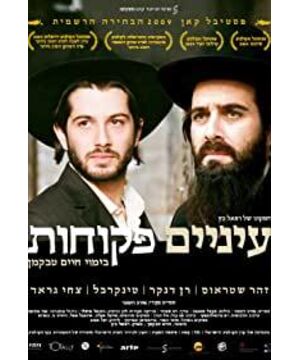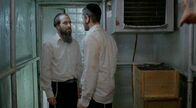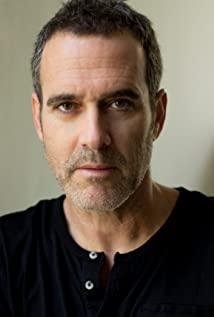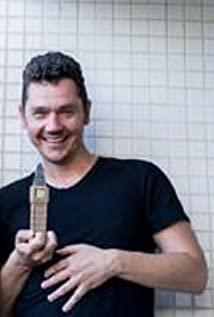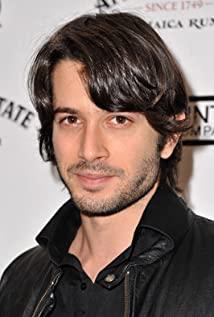It looks like an emotional drama, and it seems that the traditional society suppresses homosexuality. In fact, the film does not show an obvious attitude towards homosexuality. If the butcher's lover is a woman, the same result will be the same. In the background of the movie, another couple's encounter with a man and a woman at the same time illustrates this point. The butcher loves his lover as well as his wife. Through the paper of "love", the movie actually discusses the issue of people's identity.
First, let me introduce a little background. Israel is not a country that prohibits homosexuality. There are corresponding measures for homosexual cohabitation and even marriage and childbirth. There are many rules in the life of orthodox Jews, and they cannot recruit outsiders to join the community at will, and they cannot engage in homosexuality. These are all constraints. Their places of residence are relatively concentrated. This movie takes place in an area in Jerusalem where orthodox Jews live.
To live in such a community, you must first be a member of it and accept the rules and restrictions there. People from outside cannot enter easily. Of course the community also gives you some protection. For example, the source of business for butcher shops is mainly from community members. As a member of the community, you have to support your family and have children, recite the scriptures and learn, and do your duty as a member of society.
The butcher’s feelings aroused dissatisfaction among members of the community, and those who believed that “righteous” were tempted by evil. The butcher finally faced several choices. Is it to let the apprentice stay in his own shop, so as to be resisted by community residents, or let him leave. He himself lives in this community, abides by the rules, or goes to the free world outside to live the life he wants. Do you insist on living a gay life, or insist on living with your own wife and children?
As a result, he weighed repeatedly after the incident was revealed, and decided to continue living in this community with his wife and children, and the apprentice had to leave. After all, most people will not easily give up everything about themselves and pursue a brand new life, not to mention there are so many children. Perhaps many people will interpret this as the suppression of traditional society, but if this movie is meant to say such a straightforward truth, it is not an Israeli movie.
The butcher's wife said something very gentle but firm: Go and stay as you please, but you have to make a choice. He also fell into his wife's arms like a child and said: Please protect me. This is probably the finishing touch of this movie: it won't work if you want to take up all the ends. It is understandable that you don't want to be bound, but don't worry about enjoying the protection that this place brings you.
In fact, from the perspective of religious belief, Rabbi in the community in the movie is still a relatively tolerant one. In the front of the movie, he proposed that God sent us into this world for our enjoyment, so drinking should be tolerable. Instead, the butcher took the initiative to say that pleasure is placed in front of us, it is a test for us. It is very difficult to refuse, but we should accept this challenge. When young followers harass the butcher and ask him to drive away the apprentice, Rabbi protects him. However, Rabbi didn't think that he and the apprentice were already lovers, so he beat him angrily. Perhaps this palm also awakened him, that he could no longer live unintentionally like this, he had already touched the bottom line of this community.
Human identity is combined with certain rights and obligations. People have to pay a certain price for the sense of belonging. It also has to pay a price to break away from one identity that one has adapted to identify with another identity.
This choice also exists in Israeli collective farms from time to time. If you want to enjoy the carefree security of life and the warmth of a big family, you have to give up material pleasure and the temptations of the free market.
All "good things" are occupied, and it is impossible to not be worried about fulfilling the duties of a member of the society. The key is: you have to know which one you want.
View more about Eyes Wide Open reviews


